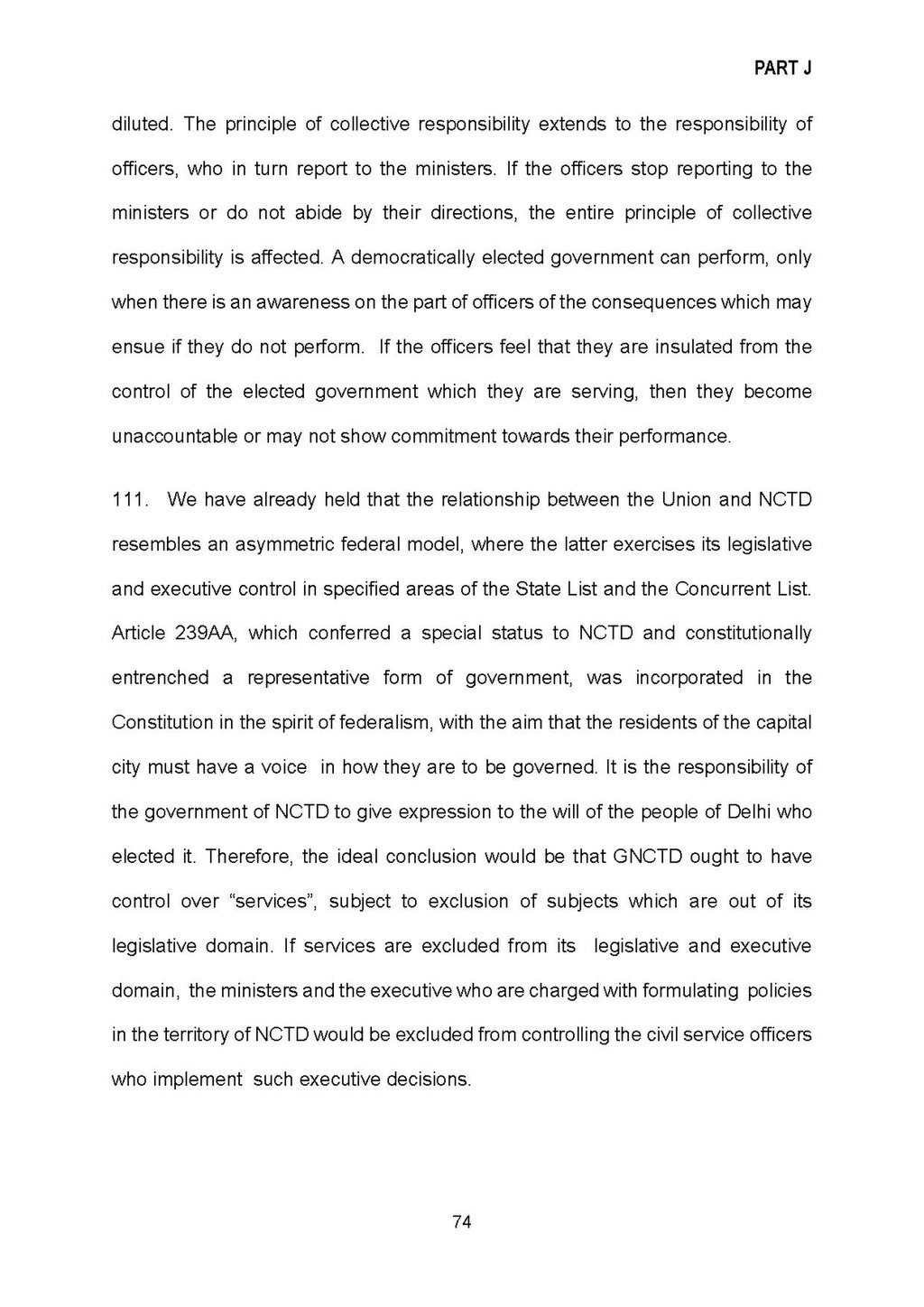diluted. The principle of collective responsibility extends to the responsibility of officers, who in turn report to the ministers. If the officers stop reporting to the ministers or do not abide by their directions, the entire principle of collective responsibility is affected. A democratically elected government can perform, only when there is an awareness on the part of officers of the consequences which may ensue if they do not perform. If the officers feel that they are insulated from the control of the elected government which they are serving, then they become unaccountable or may not show commitment towards their performance.
111. We have already held that the relationship between the Union and NCTD resembles an asymmetric federal model, where the latter exercises its legislative and executive control in specified areas of the State List and the Concurrent List. Article 239AA, which conferred a special status to NCTD and constitutionally entrenched a representative form of government, was incorporated in the Constitution in the spirit of federalism, with the aim that the residents of the capital city must have a voice in how they are to be governed. It is the responsibility of the government of NCTD to give expression to the will of the people of Delhi who elected it. Therefore, the ideal conclusion would be that GNCTD ought to have control over “services”, subject to exclusion of subjects which are out of its legislative domain. If services are excluded from its legislative and executive domain, the ministers and the executive who are charged with formulating policies in the territory of NCTD would be excluded from controlling the civil service officers who implement such executive decisions.
74
